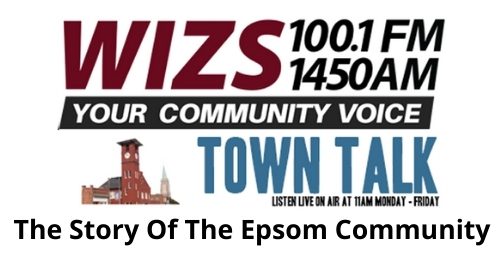The way the story goes, Mr. Simon W. Duke wanted to establish a post office in the store he opened in the area where he lived, referred to by some as Duke’s Corner or Duke’s Crossroad. He had already sent several suggestions to the federal government, but each one was rejected. Seems there already were post offices with the names he proposed.
He shared his failed attempts to Dr. Bennett Perry Alston one day while the two men were in the store. Looking around, Alston suggested the name that ultimately would be approved by the federal government – Epsom.
Mark Pace, area historian and North Carolina Room specialist at Richard H. Thornton Library in Oxford, shared this story and more about the area on the Vance-Franklin border during the tri-weekly Town Talk history segment Thursday.
Alston supposedly saw a box of Epsom Salts and perhaps somewhat on a whim said, ‘Why don’t you just apply and call it Epsom?’ Pace told co-host Bill Harris. The year was 1887.
There were already many post offices scattered across the area at the time – Bobbitt, Gillburg, Kearney, Pugh’s Hill (in the general area where Corinth-Trinity Church now stands along Highway 401), to name a few, Pace said. But Duke’s post office put Epsom on the map, as it were, thanks to Dr. Alston’s suggestion.
Alston was from the Alston family from Warren County, and Pace said he was probably the most prominent farmer in the area at the time. A veteran of the American Civil War, Alston’s daughter, Margaret, was the last living descendant of a Civil War soldier in this vicinity. She died about 20 years ago.
The area around the Epsom crossroads included about 500 acres that belonged to Simon Duke’s father. It was basically a farming, agricultural community, Pace said, and the families that lived in the area were working-class, middle-class people who went to church on Sundays and raised their families. There were few large plantations, and, consequently, there was not a huge African American presence there, Pace noted.
There are several prominent African American churches in the area – Dickies Grove, Mitchells Baptist and Rowlands Chapel, which Pace said dates back to the late 1800’s.
The Dukes and Alstons were instrumental in establishing a private academy that was in Epsom in late 1800s. Some references to the school includes names Punga Academy and Epsom High School, and the Duke and Alston families brought Elon College alumnus J.T. Cobb to run it.
Other families have with long ties to the community, including the Ayscue family. Pace said he’s seen seven different spellings of that surname in documents he has reviewed. Benjamin Franklin Ayscue, born in 1847, fought in the Civil War and was one of only three soldiers left in his company when they surrendered in Appomattox.
The story goes that Ayscue “made a deal with the Lord” when he was a soldier. If he got back home safely, he would “devote himself to living right for the rest of his life,” Pace recalled.
It seems that family back home presumed he had not survived the war, so he surprised them upon his return. As for that deal he’d made on the battlefield?
He became a deacon at Liberty Christian Church, right there in Epsom.
.
For complete details and audio click play.
